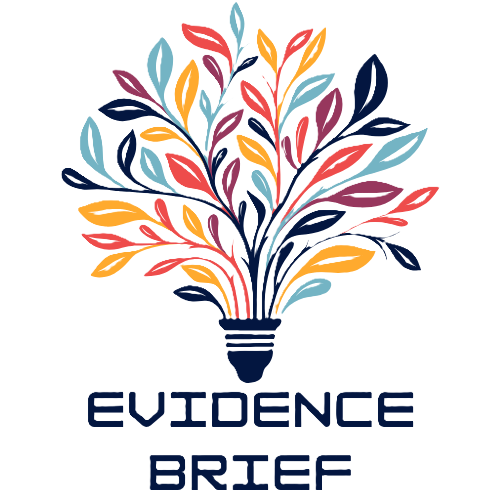Early childhood education isn’t just about teaching kids to color inside the lines; it’s about laying the foundation for lifelong learning. Imagine a world where every child has the chance to explore, discover, and develop their unique potential. That’s the magic of early education! It’s like giving kids a head start in the marathon of life, complete with tiny running shoes and an oversized trophy for participation.
Early Childhood Education And Teaching
Early childhood education serves as a vital foundation for lifelong learning and personal growth. This educational stage fosters early exploration and development of children’s unique potentials.
Benefits For Child Development
Social skills flourish in early childhood education settings. Children engage with peers, facilitating cooperation and teamwork. Emotional development gains traction as they learn to navigate feelings and form relationships. Cognitive skills advance through structured play and guided learning experiences. Language acquisition accelerates, enhancing vocabulary and communication abilities. Engaging in diverse activities fosters creativity, critical thinking, and problem-solving skills. Developmental milestones achieve timely progress due to the nurturing environment early education provides.
Long-Term Academic Success
Early childhood education correlates with improved academic outcomes in later years. Research indicates children enrolled in quality programs perform better in reading and math. They’ll enter primary school more prepared, reducing the likelihood of remedial education. Social-emotional skills play a significant role in long-term success as well. Children develop resilience and adaptability to challenges faced in educational settings. High-quality early education cultivates a love for learning that persists throughout life. Continued engagement in learning beyond early years links to higher graduation rates and career success.
Approaches To Early Childhood Education

Approaches to early childhood education vary widely, with each strategy addressing the diverse needs of young learners.
Play-Based Learning
Play-based learning integrates structured play into the learning environment. This approach prioritizes child-directed activities, allowing children to explore concepts through hands-on experiences. It encourages creativity and problem-solving skills as children work through challenges during play. Research indicates that children engaged in play-based learning show significant improvements in social skills and emotional regulation. Activities such as role-playing and building with blocks foster critical thinking and collaboration among peers. This method aligns with developmental milestones, ensuring that children develop academically while enjoying their learning journey.
Montessori Method
The Montessori method emphasizes self-directed learning and independence. Classrooms feature a range of materials that children choose based on their interests. This approach nurtures curiosity, allowing children to engage in activities that resonate with them. Structured around mixed-age groups, Montessori environments encourage peer learning, where older students mentor younger ones. This interaction promotes social development and emotional growth. Studies reveal that children educated through the Montessori method often excel in academic achievement and possess strong problem-solving abilities. Through this approach, educators guide rather than direct, fostering an atmosphere of respect and collaboration.
Roles Of Educators In Early Childhood Education
Educators play a fundamental role in shaping young learners’ experiences during early childhood education. They provide the guidance and support essential for developing cognitive, emotional, and social skills.
Creating A Nurturing Environment
Creating a nurturing environment forms the backbone of effective early childhood education. Educators stimulate curiosity and exploration through positive interactions and warm relationships. They design safe, engaging spaces where children feel valued and accepted. Materials that encourage creativity and hands-on learning enhance children’s experiences. Consistency in routines and open communication with families strengthens connections between home and school. Educators foster motivation and confidence, which are crucial in nurturing a love for learning that lasts a lifetime.
Supporting Diverse Learning Needs
Supporting diverse learning needs is vital in early childhood education. Educators assess children’s individual strengths and challenges to tailor their teaching methods accordingly. They implement differentiated instruction, ensuring that every child engages with appropriate materials and activities. Collaboration with specialists and families enhances understanding of each child’s unique needs. Additionally, culturally relevant practices promote inclusivity and respect for diverse backgrounds. By addressing various learning styles, educators empower each child to succeed within the learning environment.
Challenges In Early Childhood Education And Teaching
Early childhood education faces various challenges that impact the effectiveness and accessibility of quality teaching. Key issues include funding and curriculum constraints that educators must navigate to provide optimal learning environments.
Addressing Funding Issues
Funding challenges create significant barriers in early childhood education. Limited financial resources often lead to insufficient materials and inadequate facilities. Many programs struggle to hire qualified staff, which affects the quality of education children receive. Low income families face difficulties accessing affordable programs, limiting their children’s opportunities for early learning. To address these issues, collaborations between governments, private organizations, and communities play a vital role in securing sustainable funding sources. Increased investment in early childhood education is essential for ensuring that all children benefit from quality learning experiences.
Overcoming Curriculum Constraints
Curriculum constraints present obstacles in delivering effective early childhood education. Rigid curricula can restrict teachers’ ability to implement innovative and child-centered approaches. When educators lack flexibility, they struggle to meet the diverse needs of individual learners. Integrating varied teaching methods into rigid structures may seem challenging. However, embracing a more adaptable curriculum allows for the inclusion of play-based and experiential learning. Advocating for curriculum reforms that prioritize child outcomes supports educators in fostering creativity, critical thinking, and social skills among young learners. Ensuring that curricula align with children’s developmental stages enhances their overall educational experiences.
Conclusion
Early childhood education serves as a vital stepping stone for children as they embark on their lifelong learning journeys. By fostering essential skills and nurturing emotional development, it lays the groundwork for future academic and personal success.
The diverse approaches to teaching highlight the importance of tailored methods that cater to each child’s unique needs. As educators create supportive environments, they empower children to explore their interests and develop critical thinking skills.
Investing in high-quality early education not only benefits individual children but also strengthens communities by promoting equity and inclusivity. The commitment to enhancing early childhood education is crucial for shaping a brighter future for all.

